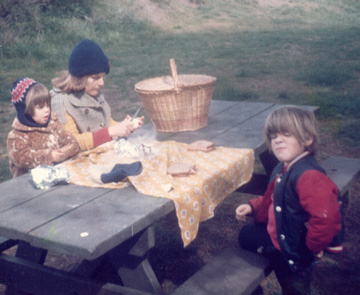 News & Tips for Parents
News & Tips for Parents
Entries by Barbara Klein, Ph.D., Ed.D. (420)
Parenting Twins Is a Monumental Challenge
How Serious Is My Child’s Problem: Whose Problem Is It Anyway?
As the school year begins to put expectations and pressures on students, parents call me with concerns about their gifted son or daughter who seem to have not been able to make a strong start. The very first reaction I have to parents is, “Don’t over react --- try to find out what problem you are actually dealing with.”
For example, a frantic mother calls and says that her daughter is afraid to go to school. When she finally gets to school after intense stress and arguing, she sits in the corner and won’t play with anyone. This parent is concerned that her child is on the autistic spectrum.
Another mother calls and asks what she should do about bullying in the classroom and on the playground. This parent is concerned that home life has been filled with chaos and stress and that her son has developed poor self-esteem and allows other children to taunt him.
A dad calls. Yes, fathers are concerned about their children. His son is very fidgety in the classroom and cannot sit still and do his work. Dad asks, “Does my son have ADHD or is he in the wrong classroom?”
My answer to all of these parents is, “Look at the problem.”
Ask yourself : “What is causing my son or daughter’s unhappiness?”
Look at the possible causes:
1. The teacher is not a good fit for your child.
2. The school is a mismatch---too big, too small, too rigid, too free.
3. Family problems are dragging my child’s coping skills downward.
4. My child is on the autistic spectrum.
5. My child has the social issues of a gifted child.
6. My child has ADD.
7. My son or daughter has a learning disability.
Consider what you can do to make your child’s educational experience more positive by:
1. Not blaming yourself, your husband or your child.
2. Getting to know the help and support you can get from the teacher and school.
3. Asking for evaluations by pediatricians, psychologists and special education teachers.
4. Look for educational consultants who can help you find the right specialist.
When you understand the problem, make a plan that you will amend as necessary because flexibility is your friend when your child and family have problems.
What helps no matter what is going on that is off kilter?
Friends and affirmation from all involved are always important and help no matter what.
The Time Is Now to Start Getting Your Intense Sensitive Child Ready for School
Getting your child ready to go back to classroom responsibilities they did not have during the summer is a critical transition. Preparing your children for work with teachers, homework and friends has a big payoff. Your son or daughter will not miss a week or two of classroom time if they are ready the first morning school starts. Here are some strategies that will help your family.
* Start putting your kids to bed earlier and waking them up earlier. Stick to the new schedule no matter what.
* Get all your children’s school supplies, lunch box, and clothes ready and organized to avoid last minute hassles.
* Take time to start talking with your child about what they are thinking about going back to teachers and school friends. Perhaps your child may not want to discuss his/her feelings about school with you, but I would keep talking about this important transition between relative freedom and school structure and accountability anyway.
Here are some topics/questions that are important for parents to understand/delve into:
1. Have you missed school?
2. What friends are you looking forward to seeing?
3. What was your favorite summer activity?
4. What was the hardest part of summer break?
5. What will you tell your friends about your summer holiday?
6. We need to get you to bed earlier!
7. What new clothes do you think you would like for school when we purchase your school supplies?
8. Let’s make a play date with an old friend from school.
